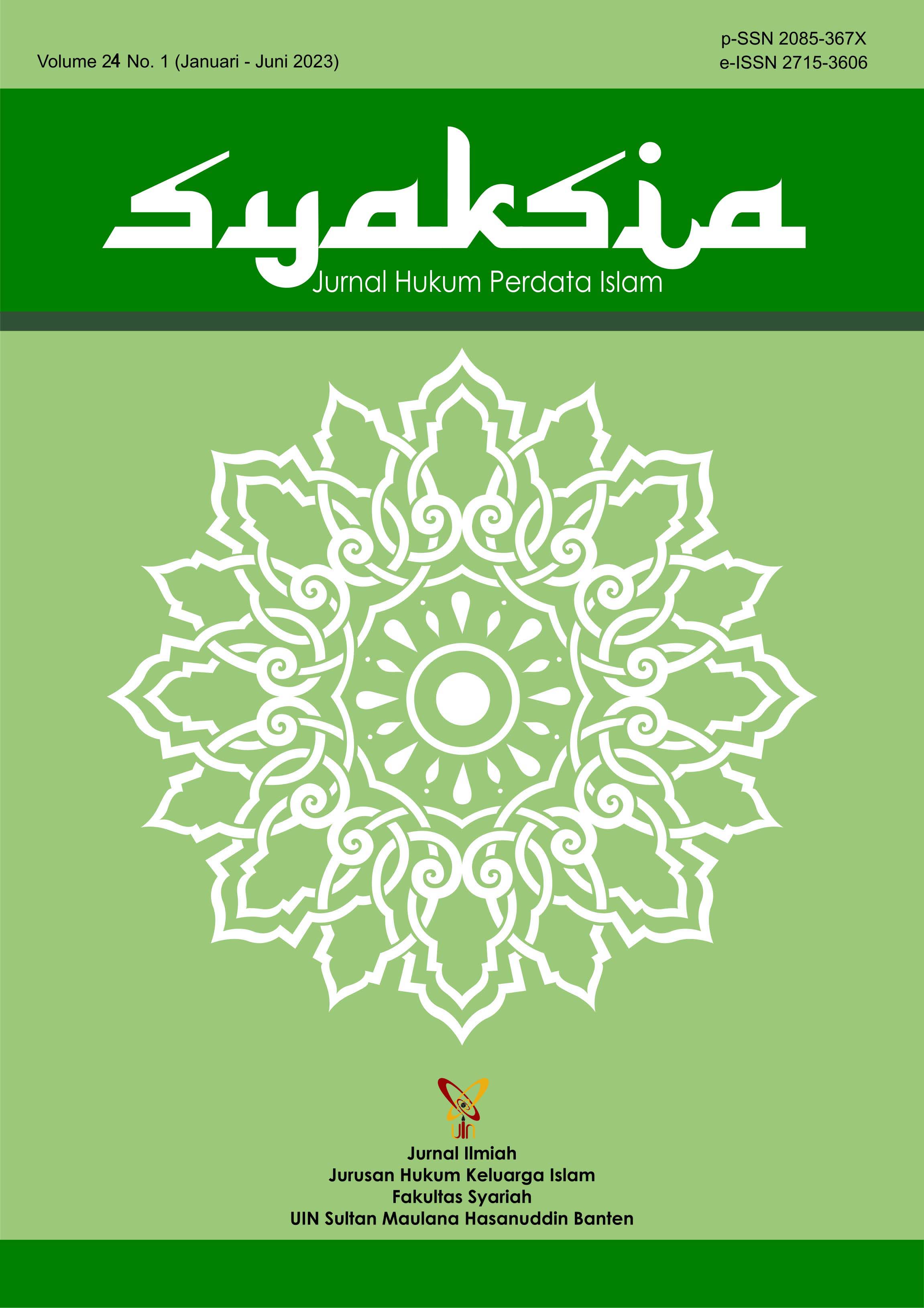STATUS HUKUM AHLI WARIS PENGGANTI DALAM KOMPILASI HUKUM ISLAM (KHI)
DOI:
https://doi.org/10.37035/syaksia.v24i1.7917Keywords:
Substitute Heirs, Legal Status, KHI, Maqâṣid As-Shari'ahAbstract
In Islamic inheritance law, it is recognized that there are groups of heirs consisting of ashab al-furud/dzawil furud, ashabah and dzawil arham. Ashab al-firidh/dzawil furud is the heir who gets a clear share and his share has been determined by sharia. If the dzawil furud dies before the death of the heir (his parents), then the heir's rights can be taken by his son (grandson of the heir) so that this grandson is called a substitute heir. In Indonesia, substitute heirs are known in the Compilation of Islamic Law (KHI) and in Staatsblad 1917 no.129 which is an explanation of BW. Meanwhile, in the Qanun (UU) of other Muslim countries, such as Egypt, Morocco, Syria, and others, they formulate substitute heirs with a different term, namely "washiat obligedah", but essentially the same in order to accommodate the rights of grandchildren whose parents died before their grandfather died. Then how is the legal status of the heir to replace the KHI perspective. This study uses a juridical-normative approach and content-analysis (content analysis). Substitute heirs are a product of legal reform and formulation that accommodates grandchildren whose parents died before their grandfather died and is a formulation of the results of ijtihad with the maslahah and maqâṣid as-shari'ah approaches as well as a sociological approach based on the principle of justice in Islamic inheritance
Downloads
Downloads
Published
Versions
- 2024-12-05 (3)
- 2023-06-30 (2)
- 2023-07-02 (1)
Issue
Section
License
Copyright (c) 2023 Hilman Taqiyuddin, Hapizul Ahdi

This work is licensed under a Creative Commons Attribution-NonCommercial-ShareAlike 4.0 International License.











2.png)
